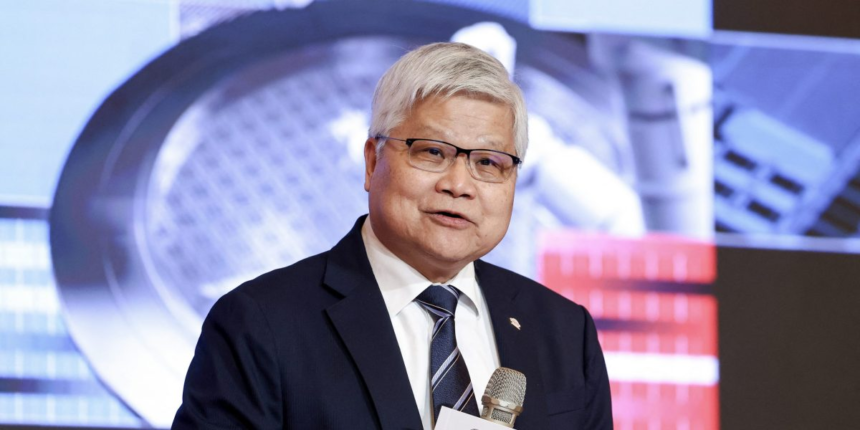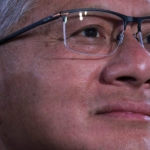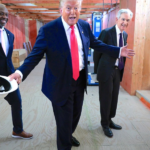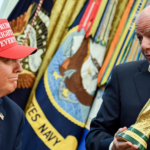“If someone had told me 10 years ago that I’d meet two presidents in one week to discuss hundreds of billions of dollars in investments to expand our global footprint, I would have thought they were joking,” CEO C.C. Wei told Fortune in written comments.
It’s also the 13th most profitable company on this year’s ranking, earning $36 billion in profit, putting it ahead of Bank of America, Exxon Mobil and Toyota. And TSMC is one of just two non-Western companies to surpass $1 trillion in market value, alongside Saudi Aramco.
TSMC joined the Global 500 in 2015, coming in at No. 472. It’s steadily climbed the rankings since then, overtaking its U.S. rival Intel in 2023.
“TSMC’s near-term outlook is especially strong, fuelled by robust AI demand and sustained capital expenditures from cloud service providers,” said William Li, a senior analyst at Counterpoint Research.
Wendell Huang, TSMC’s chief financial officer, says he expects AI to continue accelerating the company’s business, with a compound annual growth rate in the mid-40% range over the next five years.
And while Huang is paying attention to growing consumer and enterprise use of AI, he’s also interested in a relatively newer development: “sovereign AI”.
Many governments are now seeking more domestic control over the entire AI tech stack, including datasets, data centers, AI models and applications. The goal is to foster local development and reduce reliance on the U.S. and China, the current leaders in AI. Greater investment in local facilities will, in turn, drive demand for AI chips like Nvidia’s GPUs, and in turn boost the sales of chipmakers like TSMC.
Analysts point to TSMC’s dominance in leading-edge technologies, its ability to deliver high-performance chips, and its close connections with key clients like Nvidia and Apple for its success.
But Huang thinks TSMC’s success is due to something more fundamental: The company is purely a contract chipmaker, with no products of its own. That means it can’t, and won’t, compete with its customers.
Take two of TSMC’s closest competitors: Samsung Electronics and Intel. In addition to making chips, both companies also sell their own devices. Samsung sells smartphones while Intel sells computers and other personal computers–products that may compete with what their potential customers may also be selling.
Huang added that TSMC can work with customers years in advance, allowing the chipmaker to invest and innovate to make the right product for customers.
But TSMC’s importance, as well as its headquarters on the island of Taiwan, means the chipmaker is one of a handful of companies whose decisions have geopolitical consequences.
“TSMC’s elevated strategic importance means it can’t avoid being affected by U.S.-China tech competition,” said Galen Zeng, senior research manager for semiconductor research at IDC Asia/Pacific.
TSMC currently has most of its plants in Taiwan. It has two in mainland China and has opened new foundries in the U.S. state of Arizona and on the Japanese island of Kumamoto. TSMC is also currently building a new plant in Germany.
The chipmaker consistently says that overseas foundries are a direct response to customer needs.
In his email, Wei said many customers tell him how “crucial” these overseas factories are, “emphasizing the importance of TSMC’s world-class manufacturing expertise with geographic flexibility in production.” He said he didn’t consider himself an “expert in geopolitics,” adding that he takes pride “in being attuned to delivering what my customers require.”
Wei also remembered how founder Morris Chang reminded executives to “jump through hoops” for its customers. And he took a humble position on TSMC’s continued climb up the global rankings of the world’s largest companies by revenue.
“It’s a great encouragement to go up on the Fortune Global 500,” he wrote, “but the best sign of our success is if our customers are on the list—or even higher than TSMC.”









